On Writing: The Only NaNoWriMo Tips You'll Ever Need
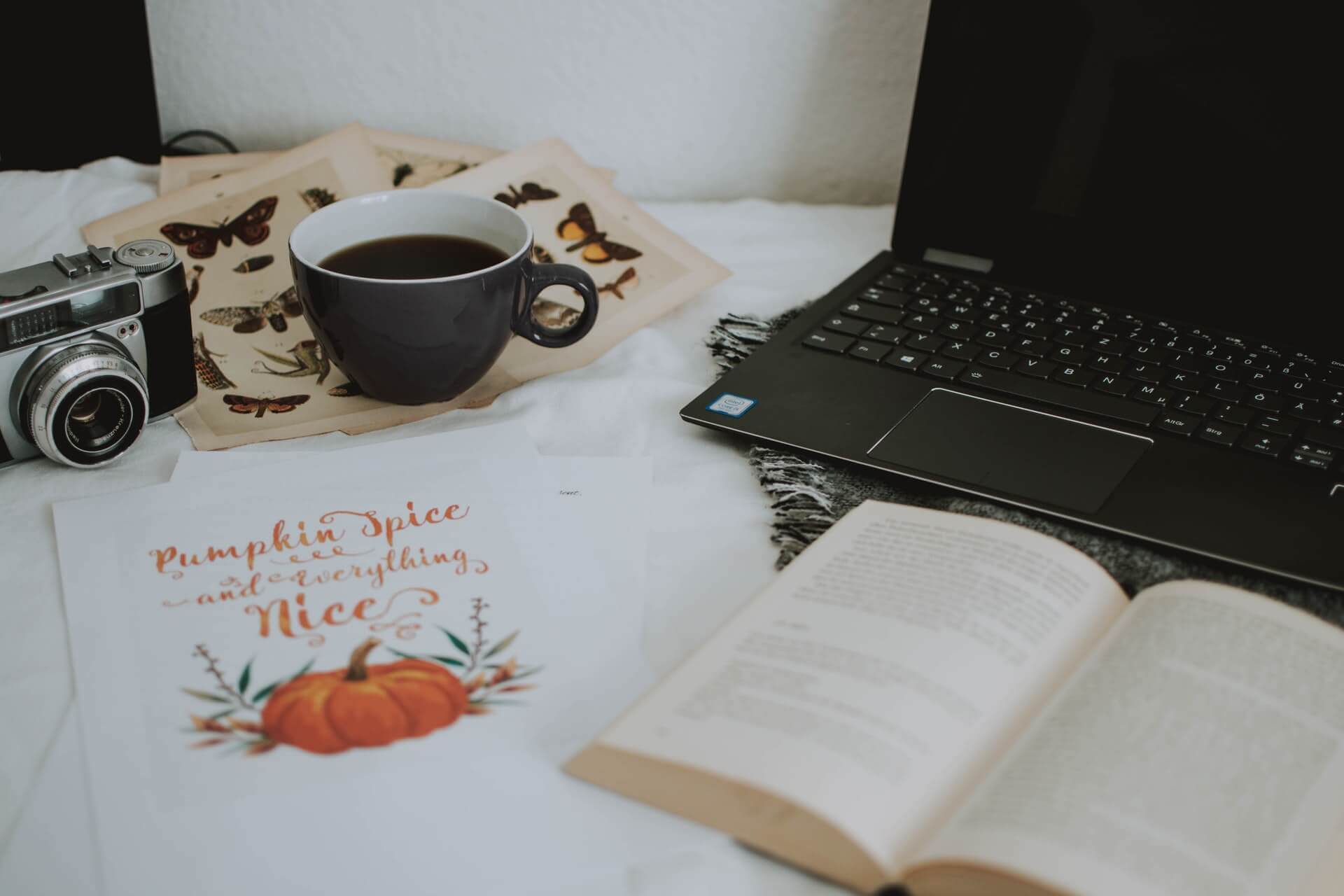
I remember this time six years ago, when I was about to embark on my first NaNoWriMo - National Novel Writing Month. I wasn't fully committed, if I remember rightly, as I really wasn't sure I could do it. I'd started so many writing projects before - novels, short stories, screen plays, flash fiction - but I'd never actually finished anything. In fact, I'd spend months on these projects, stop-start writing them over the years when I had time, and I'd get to about 20,000 words maybe 30,000 words, and I'd lose my way.
So at 50,000 words in just 30 days, could I really do NaNoWriMo? At first glance I was convinced I couldn't. I also struggled to find decent NaNoWriMo tips and advice sharing personal stories of how writers actually went the distance (other than the fantastic stuff on their official website) . Nowadays there is a lot more NaNoWriMo advice and personal experiences available online as there are more and more participants each year, but back then as I sat down to write on 1st November I felt very alone, and I would honestly hate for anyone to feel that way now when it is such a fantastic opportunity to grow and learn as a writer.... oh yeah, and to write your book.
If you're currently like me six years ago, biting your nails, staring out the window and wondering if you have what it takes to give NaNoWriMo a go, all I have to say to that person is YOU DO, and YOU SHOULD GO FOR IT! However, I know it's not that easy or simple. In many ways deciding to give NaNoWriMo a go is harder than actually doing it, especially when it's your first time and you have no idea what to expect.
The Best NaNoWriMo Tips
My story has a happy ending, in that six years ago I didn't feel alone by the time 30th November came around. And I did make it to 50,000 words in 30 days. 54,545 in fact, and I finished the first draft of my first book Shy Feet. I also gained a whole heap of experience and learned a lot about myself and my writing. As I have during November of every single year that has followed, leaving me with quite a stash of my own NaNoWriMo tips from how to prepare best for NaNoWriMo (Preptober and NaNoPrep fans, I'm looking at you!), through to tips for writing quickly, some recommended apps and tools to use to write fiction, and the things you can learn from losing NaNoWriMo. I want to share all these NaNoWriMo tips with you today...
So read on for all the NaNoWriMo advice you'll ever need and enjoy both getting ready to do, and actually doing a writing challenge that changed my life.
NaNoWriMo Tip #1: Know your why!
So let's start at the beginning, shall we? We'll do that by considering all the many good reasons you should do NaNoWriMo this year. Knowing why your doing NaNoWriMo will help you stay motivated, focused and committed to pushing through when writing every day starts to feel hard. I actually wrote a list of 21 good reasons you should do NaNoWriMo but for here I want to post the following extract which I think highlights the two most important reasons you should do NaNoWriMo:
"Reason 16. You want to be happier, or a "better" person.
If you Google "benefits of writing" you will find over 400 million results. Even just flicking through the first few pages of results confirms that writing has many positives. Here are some of them I discovered from dipping into these articles:
Writing makes you happier. Writing makes you healthier. Writing helps you express yourself and communicate your thoughts and opinions effectively. Writing helps you prepare your brain for other tasks. Writing helps you process events you can't understand. Writing makes you more productive. Writing makes you more employable. Writing even makes you sleep better.
Reason 21. There are no REAL reasons not to.
You may think that there are countless reasons NOT to do NaNoWriMo; you don't have time, work is too busy, you've never written anything before, you don't know what to write about, you don't think you can do it, you have too many other commitments.
But if you want to do it, and I think if you've got this far down the list, there's a very good chance that you do, then there really is no excuse to not do it. You should do it for yourself. You deserve to do something like this for yourself that is going to challenge you, possibly bring you joy, and explore your creativity. You don't need much equipment - just paper and a pen and time. And in most cases, you can make time. There is always a little flexibility if you're willing to give up a few other things for a month. One thing I realised during my first NaNo was that you have to sacrifice to make "winning" easier and this was an important life lesson and has definitely helped me learn better ways to prioritise in other areas of my life.
So, get up an hour earlier, or go to bed a bit later. Give yourself all day on Saturday to catch up and cancel all those social occasions you don't have to go to. Tap out some words on your phone while you're waiting for a bus or carry a notebook with you everywhere you go so you can jot down words when they start bouncing around the walls of your mind - and trust me, they will.
It's only one month, it's just 1667 words a day, and it could be the start of something quite special."
NaNoWriMo Tip #2: Get ready! (In just ten minutes if that's all you have!)
A little preparation goes a long way with NaNoWriMo, especially if you are embarking on writing a novel for the first time. (I'll interrupt myself quickly to say that there is still a place for writing spontaneously or with no planning at all, but it is my personal experience that doing a little planning will help at some point during the hard slog that November can sometimes feel like.)
The good news is that I'm not talking a lot of preparation. As I highlight in this post which shares some top tips for getting ahead at NaNoWriMo before November starts (without cheating!), there is a lot you can do in an hour, thirty minutes or just ten minutes that will help you out before 1st November. However, if you are a planner by nature or you've tried writing fiction before and got stuck so would like to do a little bit more preparation before to improve your chances of winning, below is my best NaNoWriMo advice for you about doing four hours (or so) of preparation so that you can avoid the nastiest of all NaNo obstacles - plot holes!:
"How to get ahead at NaNoWriMo in four hours
For as long as I can remember I've always had a great idea for how a story starts and I fall into the trap of thinking that the only way I give that idea all the credit it's due is by starting at the beginning and working through until... wait.. oh, yeah. I don't know what happens next. This was the story of my NaNoWriMo 2013 experience - I came completely unstuck once I'd written 30% of the story and explored that great idea without thinking how it becomes a story.
After moaning about this with my boyfriend for most of November 2013, he tentatively suggested I write a plan. A detailed plan. With a breakdown of chapter and a decided series of events that I could then follow, from beginning to end. I could even go further, he proposed, by writing a breakdown of each scene within each chapter.
"But what about spontaneous creativity? What if my characters want me to go in a different direction? What if they're not happy with what I've decided for them?" I protested.
After raising his eyebrows and checking my temperature, he simply pointed out that any plan I have will not get in the way of my "characters" but rather give me direction when they're feeling lazy and not popping up in my head.
I hate it when he's right.
So that's what I did next. I spent three hours building on the chapter breakdown I'd already written and I now have 2000 words of scene by scene action that should get me through my novel. Plus, I made some notes some relevant locations. I even took some screen shots and printed out a few street maps. I then spent twenty minutes fleshing out my characters and talking to them, telling them that all this planning doesn't mean they have to stay quiet for the next 30 days. They can be as loud as they like... I'm listening..."
And if you want more novel planning tips you can also check out the following posts in my How to Write a Book series: Tips for Coming Up With a Story Idea, What is Story Development, and How to Do It, How to Write a Book or Story Outline, and Tips and Advice for Character Development. Also you can use this quick and easy NaNoWriMo checklist to make sure you're ready to write come 1st November!
NaNoWriMo Tip #3: Learn How to Write Quickly
All writers write at different paces. Some can knock out 1000 words in 2o minutes. Others will need two hours or more to write that many words. It's impossible to compare the quality of these words, but when it comes to NaNoWriMo and word counts being the aim of the game - 1667 a day to be exact - it's no bad thing if you can speed up how quickly you write.
I've learnt the hard way what does and doesn't work for writing quickly at NaNoWriMo and a lot of these lessons are personal to me. For example, I do have more energy and focus in the morning, so generally speaking I write quicker then, but I also find it harder to switch off distractions in the morning when I haven't yet dealt with work, emails and other notifications. So for me, early evening (before 9pm) is often my ideal time to write as I'm sort of winding down and getting tired - which for some reason helps my imagination - and I've dealt with everything I need to for the day so I have fewer distractions. I also have the incentive of going to bed on the horizon - something I'm always looking forward to! - so I have a little bit of pressure to get the words down as quickly as possible.
There are also practical things and habits you can learn to aid writing quicker for NaNoWriMo. I've summarised the majority of these tips in this post on how to write quickly, but I think the following (aside from go to the toilet first!) is my favourite tip:
"Skip to the good stuff
No matter how much you enjoy writing, there will be things you thrive from working on and others that feel like pulling teeth without anaesthetic. A lack of enjoyment will frequently equal a lack of speed so give yourself permission to push the ejector seat button when you feel your interest and writing pace slow down."
Oh, and if you don't have time to learn how to write quickly, don't worry! The chances are that doing NaNoWriMo alone will improve your writing pace as that's the main thing I think that works for speeding up how quickly you write - doing lots of writing!
NaNoWriMo Tip #4: You Don't Have to Write a Novel
I'm sorry, Frankie, what was that? You're saying I don't have to write a novel for National Novel Writing Month? Have you not had your requisite two cups of tea yet today?
No, I'm serious. I have only ever written the first draft of a novel twice in my six times of doing NaNoWrimo. The rest of the time I have done the first draft of short stories or novellas. This makes me a NaNo Rebel.
You can read more about what being a NaNo Rebel means and why still taking part in NaNoWriMo regardless of what you're actually writing is a good thing here, but for now let me cut and paste this extract from the article that I hope will reassure you to join in no matter what kind of project you're going to be working on:
"I believe that NaNoWriMo is just as effective at getting anything written: poetry, prose, screenplays, memoirs, biographies, non-fiction, blog posts, an e-course, a dissertation... it really doesn't matter as long as you commit to writing 50,000 words of something creative in the 30 days of November. You will learn just as much from that as you will from writing a novel, believe me."
NaNoWriMo Tip #5: There Is No Such Thing as Losing!
You're a writer, so you'll know the importance of language, and this is why I get a bit annoyed when people talk about "winning" and "losing" NaNoWriMo. For the record, I've done both. I've won with thousands more words over the final target, and I've lost despite writing pretty much every day yet still coming up nearly 15,000 words short. Other times I've scraped to the finish line in a mad panic, exhausting myself (and funnily enough never ever returning to or using what I wrote during that particular November). What I have learned from these winning and losing experiences is that BOTH have proven equally as beneficial, insightful and informative to me as a writer. And if I had to choose, I would actually say that I learned more the time I lost.
I share all the things I learned from losing NaNoWriMo here, but I think the following paragraph sums it up best of all.
"I still love writing, even when I'm not "winning" NaNoWriMo or meeting word count goals.
There's a football chant that goes something along the lines of "You're only singing when you're winning!". Not so with writing. Even when I knew I was going to lose NaNoWriMo, I still opened up my laptop to try and squeeze out as many more words as I could on the 28th, 29th and 30th November, and as I did so I felt the same highs, joys and rewards that writing gave me in previous Novembers when I knew I was going to get to 50,000 words, or when I was writing any other month of the year. Word count goals aren't only there to release waves of happiness as you surpass them; they're there to keep you moving in a direction and the journey will then provide the highs and the lows. Upon reflection, this is so obvious to me because there have been many more word count goals I've missed than those I've hit, and guess what? I still flipping love writing."
I don't share this particular NaNoWriMo tip to tell you it's okay to aim for less words than 50,000 or to relax, take it easy and not even try because just writing anything in November will be better than writing nothing (which is of course true!!) but rather, I want you to know that if you stay committed to the challenge, do whatever you can to get there, but also stay kind to yourself in the process, there will always be positives to be gained from your experience regardless of your final word count
NaNoWriMo Tip #6: You Are Not Alone (So Connect With Other Writers!)
After realising that I could finish the first draft of a project, the second best thing that my first NaNoWriMo taught me was that I was not alone. Discovering other writers all over the world trying the hardest to get their words written and make it to 50,000 words was such an eye-opening, encouraging experience it transformed how I thought about writing. I no longer felt like I was alone in my attempts to write my first book. I knew that there were thousands of others in the same boat just from searching the #nanowrimo hashtag on Twitter, and if I shared updates of my own progress using the hashtag I also received lovely replies congratulating me or encouraging me to keep going on a bad day. I also connected and followed other writers' progress through the NaNo website itself, and since my first NaNoWriMo back in 2011 I have seen the community explode on Instagram too.
Of course, you can also connect with other writers in person and offline by joining a writers' group, or maybe even starting your own, but I personally find social media a great way to find other writers quickly and easily, and to also dip in and out of the community when you need it or have time for it, rather than committing to meetings or write-ins, which are absolutely fantastic for helping you stay motivated, focused, and feel part of a writing community, but if you're time short (like me!) they can be quite time- and effort-consuming, or just not practially possible.
And if you're wanting to get more connected with the online writing community in general, here are some of the Twitter writerly hashtags you should explore and use and not just during NaNoWriMo. I also recommend joining my WriteNOW Cards community over on Instagram as there will be daily encouragement or inspiration for all those taking part in NaNoWriMo.
NaNoWriMo Tip #7: Get Your Writing Area and Playlist Ready
If you can't do any preparation for your book ready before 1st November, at least give yourself five minutes to decide where you're going to write. Returning to the same spot - be it a desk, your bed, a shed, or the local coffee shop - every time you write will help train your brain to get into writing mode quicker than if you write anywhere and everywhere, although from what I've written in previous posts sometimes this is the only way to get your word count done, and that's also completely fine! However, if you are lucky enough to have a bit more flexibility with your time and you can choose where you're going to write each day (or nearly every day!) then I would definitely recommend keeping it the same. Get your area ready by making space for you to write. Make it comfortable. Have everything you need in place - laptop (and charger!), notebook, Post-It notes, chocolate, mug warmer (a life saver, FYI!) - and ideally do what you can to make that space (no matter how small!) as free from distractions as possible, i.e. find a key for the door so it locks!
I know every writer is different and some have to have absolute silence to write, while others like atmospheric backing tracks like "jungle sounds at dawn" or "white water rapid waterfalls" (HOW?!? I would just need the toilet every five minutes!) but I'm a writer who likes to listen to music. Not just any music but relaxing, soulful and soothing, emotive music. I started creating a writing playlist back when I did my first NaNoWriMo in 2012 and I've kept adding to it ever since, and after editing the order of songs a bit , I also decided to share it with other writers here, so if all else fails you can try my writing playlist. However, I do strongly recommend you build your own because you know your music tastes best of all! Either way, if it's available where you are, I highly recommend getting on Spotify as they will also build playlists for you depending on what you listen to most - so that's useful for those of us who are time short (and possibly also a bit lazy!).
NaNoWriMo Tip #8: Take Breaks (and Try Exercise)
This may be the NaNoWriMo tip nobody expects, but it is a valid and valuable one. Writing for an hour or more every single day for 30 days is hard, especially if you're not used to writing that much, that often, and while in the beginning it feels good and exciting come the end of Week 2 or the beginning of Week 3, it can feel anything but. You will feel tired and lacking in motivation, and this risks slowing your pace or affecting your energy and focus, which in turn then makes you enjoy it even less. My best advice (aside from getting ahead early!) for combating this fatigue is to take short, meaningful breaks. That doesn't mean spend a spare hour (that you could/should be writing) on Facebook or Instagram, It means take a big step away from doing anything with a device and get offline. Disconnect, and ideally, do something that is almost the complete opposite of writing for thirty minutes or so. For me, that means going for a run or a walk. I've written previously about how running helps my writing, and it couldn't be more true than during the intense month of November when I'm doing NaNoWriMo. In this extract I explain more:
Of course, running or any kind of physical exercise may not be an option for everyone, and in that case I recommend spending time on another hobby, anything that accesses a different part of your brain so your writing muscles can rest a little, but you're still keeping your mind active enough for it to come up with some ideas for how you get yourself out of a plot hole, or how you find inspiration to write again.
The key, again, is keeping the break short. Don't allow a beneficial break to become three days of writing. Preferably, keep the break under an hour and when it's done, try to write again. It doesn't matter if you miss your word count for that day because you run out of time, the chances are that writing less one day will lead to you writing more the next...
NaNoWriMo Tip #9: Write The Way You Want (i.e. Blanks, Weird Comments and Spelling Mistakes Are YOUR FRIENDS!)
First drafts are generally ugly, messy things. But that's exactly what they're supposed to be. They're not meant to be read by anyone other than you, so remember that as you write your words for NaNoWriMo. In fact, take full advantage of it. Make what you write during November as brilliantly messy and abstract and unpolished, and yes, unfinished as you possibly can. Ironically, that is the BEAUTY of NaNoWriMo as it's possibly the only time you should be aiming to write a pile of poo, rather than aiming to do your best work. It's also in writing with abandon that you will learn how best to write for you. You don't have to write anything to please anybody but yourself. If you're writing something that you want to edit later and one day publish, then whatever you write in a first draft is for those future versions of you, so as long as it's worthy of your editing and re-writing eyes, it's worthy!
It's hard to explain why this is important, but it is ultimately a time thing. The less time you spend re-reading, editing or polishing during NaNo, the more time you will spend writing new words. It's these new words that matter most because they are the ones that get you to your word count target. Of course, I'm not saying fill your manuscript with random words or copying and pasting lorem ipsum text just to meet your target, but rather, if you need to stop what you're writing and open up some brackets to then write (I'M KIND OF STUCK IN A HOLE HERE WITH THIS) or (I DON'T REALLY LIKE THIS SCENE SO IT'S GOING TO NEED A LOT MORE WORK LATER!) or (REMEMBER THAT CHARACTER X HAS BLUE EYES), then this is absolutely fine. It's more than fine it's important! That's why, in my mind, these words count just as much towards your word count as the actual meat of your first draft.
NaNoWriMo Tip #10: It's Supposed to Be Hard... So Have Something to Look Forward to
NaNoWriMo is but one month of your life. However, when the words don't come, and you're tired, and you're behind on your word count, and you have a sore neck from leaning over your laptop, it can feel like a long and difficult month, and the temptation to stop will come roaring into your consicousness faster than a sugar craving. Well, I'm not going to give you any advice that makes it problem- or trouble-free. In fact, I happen to think that it's important that NaNoWriMo is hard, because where is the sense of achievement at the end if you haven't struggled a little? That doesn't mean punishing yourself or making yourself really and truly do something you don't want to do, or physically or emotionally can't do, but rather it means accepting that it's not going to be easy and that you will have moments where you want to give up. When this happens take a moment to acknowledge whatever it is your feeling - frustration, fear, exhaustion, confusion, or all the above and many more - and then see whatever happens next as an opportunity to grow and learn. Do you have enough energy to just plough on regardless and see how many words you can write even though you don't want to? Could you jump to a different part in your story, a part you may enjoy writing more? Is now a good time to take one of those short breaks we just discussed? However you feel when it feels hard, know that that won't last forever, not if you decide to challenge that feeling and find a way to work around it.
So that's the bad news; it's supposed to be difficult. The good news is that this means you are fully entitled to spoil yourself rotten come 1st December, regardless of how many words you've written or whether you won, lost or abandoned your NaNo project a week ago because it all got too much (and FYI - I've been there and this is a very healthy good thing to do!). You need to acknowledge and reward your efforts, especially if it was the very first time you've embarked on anything like writing a book or a daily writing challenge like NaNoWriMo.
Personally, I celebrate by taking a lot of time away from the draft I've just worked on. It helps that December is normally a busy time for me wrapping up work and having lots of social events for Christmas and the end of the year, but I also like to take time for myself and do a few things I won't have done during November because of NaNoWriMo, like long walks, evenings with friends or a date night with my partner, and if possible maybe a weekend away. I also get back into reading as that normally suffers a bit too during November, or returning to other creative hobbies that I've no doubt neglected; baking, crochet, photography. And if all else fails, eat cake, drink wine, and have long bubble baths (or do all three at the same time - what a dream!). So take a bit of time now to think about what you're going to give up to do NaNoWriMo and do everything you can to reintroduce these things into your life in December as both a reward for your hard work, and also as an enjoyable interval, because guess what!? You are nowhere near finished with your book yet... In fact, you're only just getting started, but that's another post for another day!
Here are some other writing advice posts you may find useful for getting ready for and overcoming the hard times during NaNoWriMo:
21 Good Reasons You Should Do NaNoWriMo
Three Secret Ingredients for a Productive Writing Habit
Ten Things You Need to Remember During NaNoWriMo
Lessons Learned from Losing NaNoWriMo
How to (Successfully!) Do NaNoWriMo as a Parent
What is a NaNo Rebel? (And How to Be One!)
Get Ahead at NaNoWriMo in Eight Hours (Or Less) Without Cheating
Are You Ready to Do NaNoWriMo: NaNoWriMo Checklist
Why Writers Need Writing Affirmations
Tips for Doing a Daily Writing Challenge
How to Build a Regular Writing Habit
Why Running Makes Me a Better Writer
How to Start a Writing Habit That Sticks (In Just Ten Minutes)
The Best Twitter Hashtags for Writers
The Best Apps for Productive and Distraction-Free Writing
And don't forget my How to Write a Book Series of posts: Part One - The Story Idea / Part Two - Story Development / Part Three - Writing a Book Outline / Part Four - Character Development & Character Development Questions
And back in 2014, I wrote 30 days of NaNoWriMo Inspiration. You can start at Day One here, and work your way through them every day of NaNoWriMo!
And if you'd like to save or share this post, here are some images you can pin:
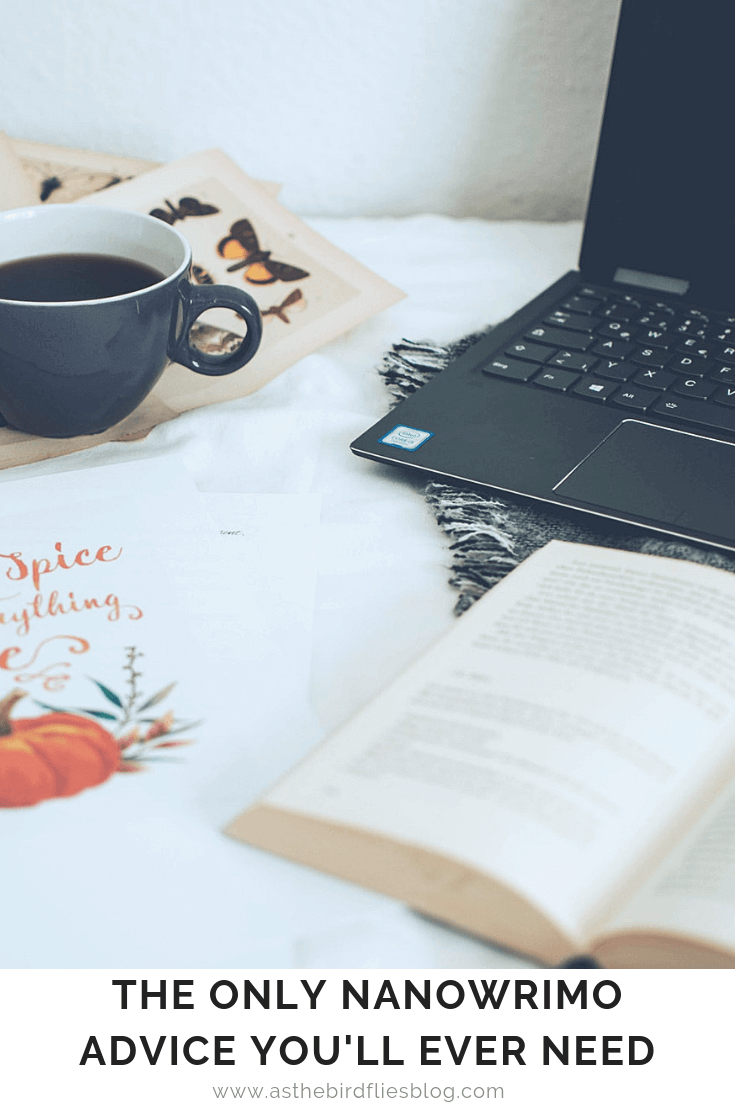
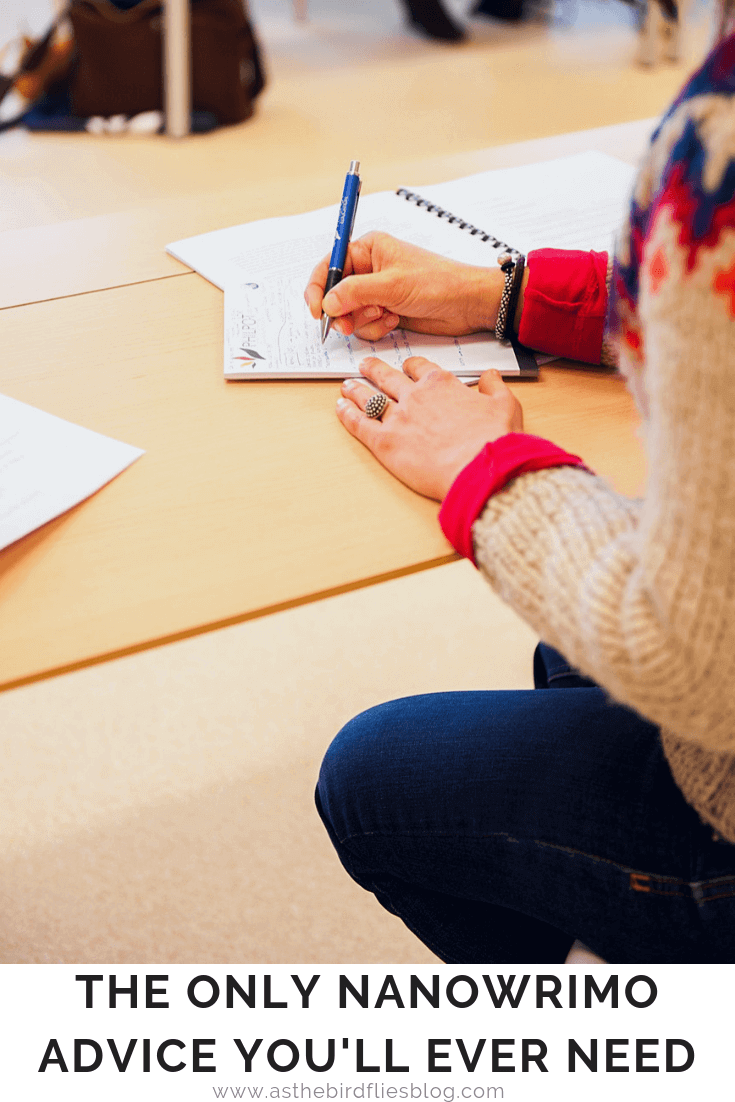
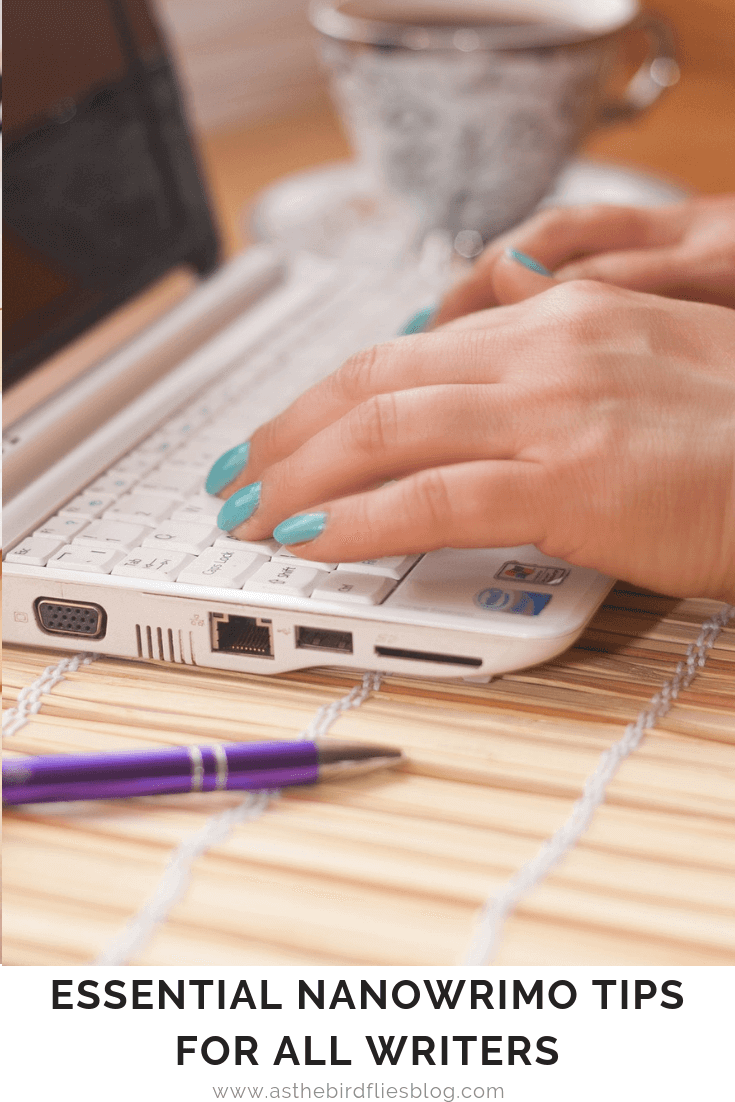
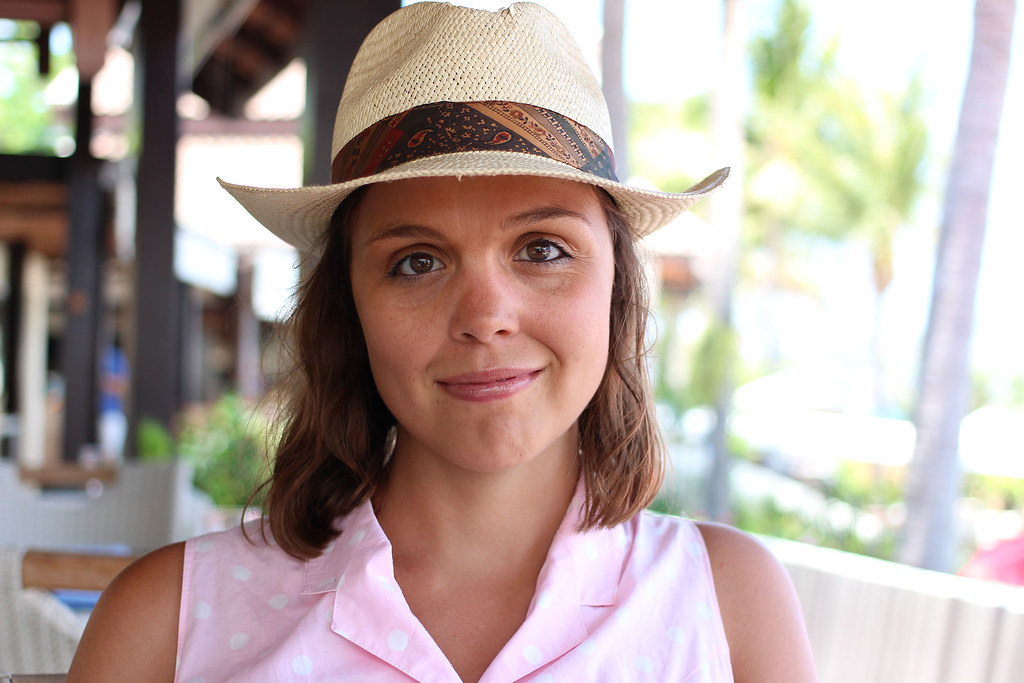
Frances M. Thompson
Find Frankie on Facebook, Twitter, Instagram, Pinterest, and Google+.
 On Writing: My Writing & Publishing Plans for 2023
On Writing: My Writing & Publishing Plans for 2023_x300.jpg?v=1) On Writing: The Year I Decided to Write for My Life
On Writing: The Year I Decided to Write for My Life On Writing: Best (& Easiest!) Creative Habits All Writers Should Try
On Writing: Best (& Easiest!) Creative Habits All Writers Should Try On Writing: How to Earn Money by Writing Stories
On Writing: How to Earn Money by Writing Stories On Writing: What Are The Different Types of Editors?
On Writing: What Are The Different Types of Editors? About the Blog & Frankie
About the Blog & Frankie Welcome to My Amsterdam Travel Blog!
Welcome to My Amsterdam Travel Blog! Welcome to My Luxury Family Travel Blog!
Welcome to My Luxury Family Travel Blog! Welcome to My Writing Blog!
Welcome to My Writing Blog! Lover Mother Other: Poems - Out Now!
Lover Mother Other: Poems - Out Now! I Write Stories That Move You
I Write Stories That Move You Order WriteNOW Cards - Affirmation Cards for Writers
Order WriteNOW Cards - Affirmation Cards for Writers Work With Me
Work With Me